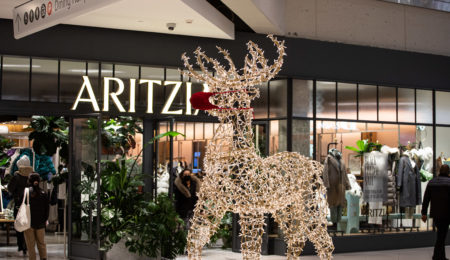Christmas. The holiday that gives the retailers wet dreams, and makes everyone else afraid to look at their bank accounts.
This holiday madness seems to have taken an unfortunate turn the last few years—a holiday season that used to encompass a few weeks, or a month at most, has recently been thrown into the spotlight as soon as Nov. 1 hits.
I remember when I was a child, and two weeks before Christmas the mall would start playing the Christmas tape-deck on a loop. At first it was intoxicating—it would be the perfect start to the excitement of the holidays. After a week, the music began to feel repetitive, stale and finally just annoying. Then on Dec. 26 the holiday CDs would be packed up for next year, with no hard feelings.
Now, walking by stores on the day after Halloween, I see employees taking down pumpkins and witches and immediately replacing them with Santa and Rudolph. Neighbours on my street have their elaborate home decoration schemes up and ready within the first week of November. At the grocery store I hear parents trying to calm their noisy kids by saying those fear-inducing words, “If you’re not good, Santa won’t come.”
This extension of the holiday season is toying with children’s and parent’s minds alike. This holiday has turned ugly, from an event where families can celebrate and share gifts and good wishes to a commercial overload that stresses out just about everyone.
The extension of the holiday season makes Christmas a lot more stressful than it should be. Worrying about the right gifts and the debt defeats the entire purpose of the Christmas holiday. Two weeks of stress is bad enough, but two months is ridiculous.
A premature start to the holiday season just encourages greed and frivolous spending among consumers, and invokes high stress levels which ultimately take away from family time.
There are a couple of things we can do to slow this holiday rush. Christmas needs to become more like Thanksgiving—you invite people over, you spend time together, and material items play a minimal role.
Christmas should be held in a similar regard. It might also be time to re-think the concept of gift-giving. The simple act of giving a gift is more important than the gift’s value. Baking cookies and giving them to all of your friends will make you feel much happier than buying an expensive Pandora bracelet charm for one person.
We are students after all, and no one should be expecting to receive a quarter of your monthly budget in that sparkly red and green gift bag. Keep the exchange realistic, and start valuing the person and their effort over the gift’s price tag.





